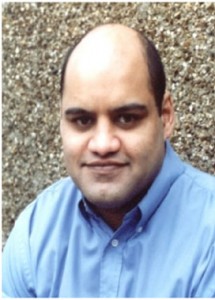Who we are
The Fitted-In Project is a group of concerned people who decided to organise themselves to achieve their potential to facilitate policy changes in the criminal justice system. It dedicates immeasurable time and effort helping individuals who have become involved in cases of injustice caused by the failures of the criminal justice system, including the Crown Prosecution Service. Author Satish Sekar wrote Fitted In: The Cardiff 3 and the Lynette White Inquiry and also The Cardiff Five: Innocent Beyond Any Doubt. Both books detailed what is now acknowledged to be one of Britain’s most notorious miscarriages of justice. Sekar is the Founder of the Fitted-In Project, which published the book Fitted In: The Cardiff 3 and the Lynette White Inquiry in 1997, but soon realised that its work was not complete.
The conviction of Jeffrey Gafoor, the real killer of Lynette White, justified our belief in the case of the Cardiff Five and its potential to change the criminal justice system, but it soon raised other issues that could not be resolved by books alone. We recognised that we needed to evolve and decided to expand the scope of The Fitted-In Project. We began that process by formally establishing The FIP as a company limited by guarantee in February 2010 to enable us to conduct projects and activities that would highlight our concerns and improve the lives of the victims of miscarriages of justice and improve the criminal justice system in the process. It currently focuses on publishing books and highlightong issues through this website.
The Fitted-In Project highlights issues related to under-reported areas of miscarriage of justice work. These injustices devastate lives and not just of those wrongly accused. Some victims of these injustices are not even recognised as having suffered a miscarriage of justice. It is a grave injustice that people such as Colin Stagg are not recognised as victims of miscarriages of justice. Stagg was vindicated by the acceptance of responsibility by Robert Napper, but definitions of miscarriages of justice do not include those acquitted at trial.
We believe that people who can be proved innocent must be considered victims of miscarriages of justice. Six of the vindication cases in the DNA age in Britain involve people who were acquitted at trial. It is not enough to say that they have not been proved guilty; they are demonstrably innocent and that must be acknowledged in order to help them move on and society too and to help develop a criminal justice system that is fit for purpose and just. The FIP believes that people like Colin Stagg must be acknowledged as victims of miscarriages of justice. The definition must change to recognise what they have been through and begin the process of restorative justice for them, but even this is not enough.
In October 2024 the Parole Board decided to release the real killer of Lynette White without hearing from any of the wrongly accused. Their victimhood was denied in an application to have the hearing heard in public, denying them a chance to be heard and denying the public openness and transparency. This came after Gafoor received an incredibly lenient tariff of just 13 years for an incredibly brutal sexually-motivated murder, meaning he could apply for release on parole after serving just 13 years. He had also allowed five men he knew to have been innocent to have their lives and those of their families ruined. Satish Sekar's next book, Bad Form: How Tariffs Protect the Guilty and Punish the Innocent will be published early in 2025.

Satish Sekar - Founder & CEO
Satish began working on justice issues in 1990, helping to set up human rights solidarity campaigns over the use of the death penalty in the Caribbean and the USA. His greatest success is the incredible case of the Cardiff Five (Yusef Abdullahi, Stephen Miller, Tony Paris and the cousins John and Ronnie Actie).
What we do
In addition to projects, we decided to participate in and initiate activities that further the Aims and Objectives of The FIP. Highlighting issues such as vindication, which we pioneered, after-care for victims of miscarriages of justice, which includes the effect on their families, the effect of tariffs on them and the use of sport to assist them to rebuild their lives. We publish reports on some of these projects and pamphlets on specific issues.
The FIP also assists people by hiring out the expertise of our members for activities that fit our Aims And Activities.




